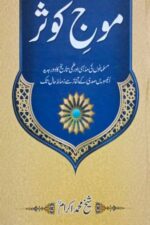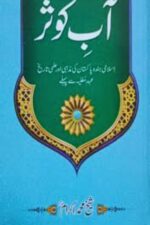Tuzuk Babri – Zaheer-ud-Din Muhammad Babur (Autobiography)
Tuzuk-e-Babri, also known as Baburnama, is the autobiographical memoir of Zaheer-ud-Din Muhammad Babur, the founder of the Mughal Empire in India. Written originally in Chagatai Turkish and later translated into Persian and other languages, this classic historical text provides a firsthand account of Babur’s life, his military campaigns, personal reflections, and the socio-political conditions of Central Asia and the Indian subcontinent during the 15th and 16th centuries.
This book is a key source for understanding the early history of the Mughal rule and offers deep insight into Babur’s personality, leadership, and vision. He documents events with honesty and vivid detail, covering his lineage, battles, conquests, administration, and interactions with people and places. It is an invaluable piece of literature for those interested in Mughal history, Islamic rulers in South Asia, and Central Asian heritage.
Tuzuk-e-Babri book is more than just a ruler’s diary—it’s a rich narrative of early modern history that bridges cultures from Samarkand to Hindustan. It is widely regarded as one of the most authentic and detailed memoirs by a monarch and is essential reading for students, scholars, and anyone passionate about South Asian historical literature.
Key Highlights of the Book by Zaheer-ud-Din
-
Firsthand historical account by Mughal emperor Babur
-
Detailed descriptions of 15th and 16th-century Central Asia and India
-
Covers major battles, political events, and cultural observations
-
A foundational text in Mughal and Islamic history in South Asia
-
Valuable for researchers, students of medieval history, and history enthusiasts
-
Preserves the rich cultural and political heritage of the early Mughal period
You can also read these history books:














Be the first to review “Tuzuk e Babri (Babarnama) Book By Zaheer-ud-Din Muhammad Babur”